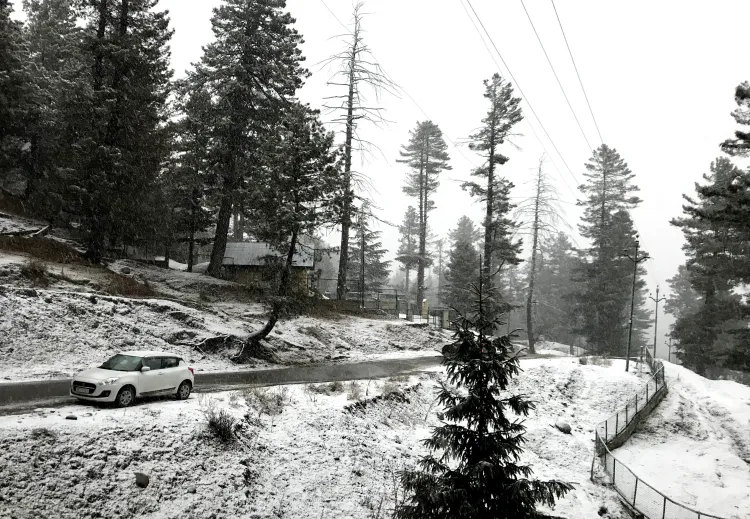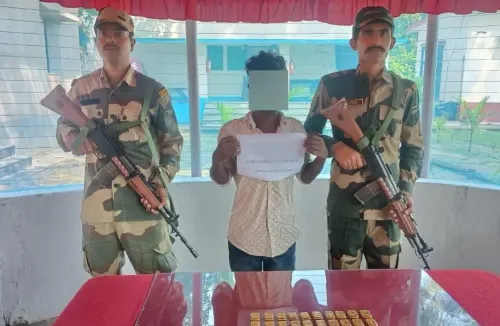Kashmir Prepares for a Colder, Wetter Winter This Year: Insights from J&K MeT Department

Srinagar, Dec 1 (NationPress) As the nighttime temperatures in Kashmir have plummeted below zero, the Meteorological (MeT) Department has announced that the valley is bracing for a colder and wetter winter this year.
On Sunday, the nighttime temperatures across the valley fell below the freezing mark, while the maximum temperature observed on Saturday also exhibited a downward trend due to cloud cover and fog.
As is typical during the winter season in Kashmir, the gap between the minimum and maximum temperatures is starting to narrow as residents prepare for a particularly bitter winter.
Mukhtar Ahmad, the Director of the local MeT department, stated that this year’s winter is expected to be harsher with increased instances of snowfall.
“Thanks to the La Nina phenomenon in the Pacific Ocean, Kashmir is anticipated to experience a longer, harsher, and wetter winter this season,” Mukhtar Ahmad told IANS.
The term La Nina, which translates to ‘little girl’ in Spanish, refers to a climatic phenomenon that leads to interactions between the ocean and atmosphere, influencing the temperature of waters in the central and eastern tropical Pacific Ocean, ultimately impacting global weather patterns.
On Sunday, the minimum temperatures recorded were -1.3 degrees Celsius in Srinagar city, -2.6 degrees in Gulmarg, and 0.3 degrees in Pahalgam.
In Jammu city, the minimum temperature was 9.5 degrees Celsius, while Katra recorded 9.8 degrees, Batote 4.2 degrees, Banihal 1.4 degrees, and Bhaderwah 1.6 degrees.
The 40-day period of extreme winter cold, referred to locally as ‘Chillai Kalan’, begins annually on December 21 and concludes on January 30. During this time, nighttime temperatures drop significantly below freezing, while maximum temperatures typically remain around 7 to 8 degrees Celsius, resulting in severe cold during Chillai Kalan. Fresh vegetables become scarce in the valley during this duration.
Consequently, locals traditionally store dried vegetables such as tomatoes, brinjals, and pumpkins during the autumn months to sustain themselves through the harsh winter. The practice of drying and preserving vegetables is an integral part of local customs. Additionally, fish is also dried and consumed throughout the winter months in Kashmir.









